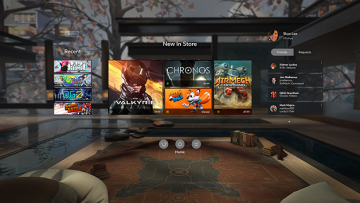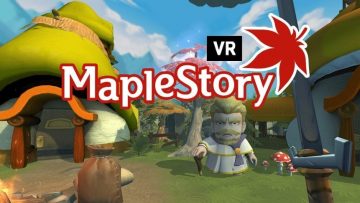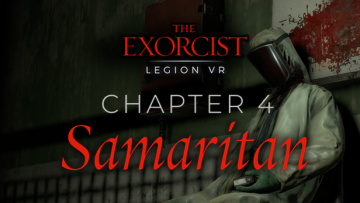
VR vs. Evolution & The 1%
One of the most telling moments in George Orwell’s Animal Farm is the revelation that the ‘Seven Commandments of Animalism’ that the free animals of the former Manor Farm abide by have been significantly altered. Already adjusted to create loopholes for the ruling pig classes to get around being denied luxuries, the last and fundamental rule that ‘all animals are equal’ is changed to the adage that ‘all animals are equal but some animals are more equal than others’. In the book it’s the point of no return and in the highly altered animated feature from the 1950’s the point that a second revolution kicks off, led by the betrayed animals left behind.
There is a sense from some in the virtual reality (VR) community that the VR video games and experiences being produced are somehow letting everyone down. That creators’ efforts aren’t good enough. It’s a feeling that seems to range in intensity from mild grumbling to outraged calls for rebellion. This isn’t what I signed up for, off with their heads! Unfortunately in this instance the idea that all VR games should be created equal is an ideal that really just won’t fly.
Now, I too wish that VR would start producing larger scale experiences, bigger games, things more akin to what you would receive from a ‘regular’ gaming console or PC. But at the same time we have to realise that just isn’t going to happen yet. If this were a book we’re now on chapter 3. We’re not into the meat and potatoes of the plot yet. We’ve been introduced to the protagonists and the readers are starting to get a handle on the way things work. The same is true for developers. Everyone’s still trying to understand what even counts as ‘normal’ before we can improve on normality. It’s frustrating for the end user but something we all need to accept.
VR creators must be allowed to make their creations. It’s fine to say ‘this won’t do, we need better’ but there’s an increase in ‘if it’s not this’ or ‘if its not on this’ then ‘don’t bother doing it at all’. The need from some to bury a project because its not on their HMD or that it uses one mechanic and not another. Developers need to be allowed to at least make the things.

VR is evolving and experiences are evolving too, a point made here before – but evolution isn’t fast. We didn’t start as apes on a Monday and were doing The Times crossword puzzle by Wednesday. Additionally not all evolutionary paths led to success, these died out, successful ones moved on – but it all took time. In much the same way VR games will adapt to the consumer environment and improve.
Want an example? We’ve got new motion control options on the horizon. New game experiences around the corner… and existing experiences are updating and adapting too. NEWS FLASH: Shock horror! Developers develop things!
VR is not going to be equal to video games any time soon – it is it’s own thing. It will take time. It will take patience. And if you want all VR video games to be created equally you are, I regret, in for disappointment. That’s not going to happen, and if you want an example of why just look to the industry you’re wanting it to be equal in quality to.
When we look back at the NES we don’t turn to people and rave about how awesome the likes of River City Ransom or Jim Henson’s Muppet Adventure or Hudson Hawk were. When was the last time you even thought about any of those games? When you look back at the SNES can you honestly say Young Merlin was exactly what you wanted from a game? As someone who owns it, trust me, the answer is no. What about the original PlayStation? Surely after the generations previous we had nothing but gems. I say in response the words “Mary-Kate & Ashley: Magical Mystery Mall“.
Now that we’ve done that, let’s not speak them ever again.
When we talk about games historically and in the present we talk about a fraction of the total library. The same is true for all consoles. The same is true for PC and Steam and the same will also be true for VR. When we get on to the next generation we’ll probably only fondly remember 1% of the total library – but we have to let that library develop for that 1% to shine through. Not everything in VR is going to be quadruple A with a cherry on top – and that’s just fine. Because we actually need that. We have to let developers develop. Because that’s the way things evolve – studios will try and they will succeed or they will fail and they will die. But they do have to be allowed to actually try and not be shot down for trying at all.
Remember: Variety is the spice of life and it’s variety that helps us appreciate the best bits of it that much more.
This article was originally written by the author for VRFocus.






![Private: [ID: _ysslzefllQ] Youtube Automatic](https://lastminutecontinue.com/wp-content/uploads/2024/10/private-id-ysslzefllq-youtube-au-360x203.jpg)